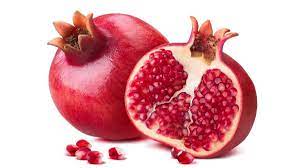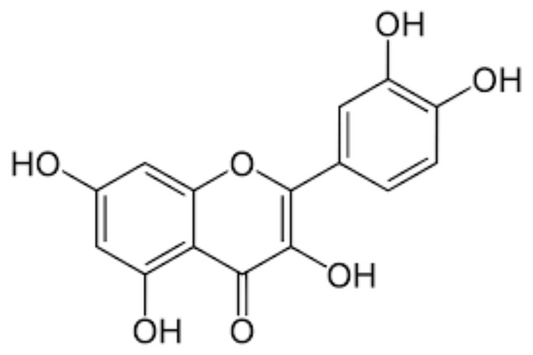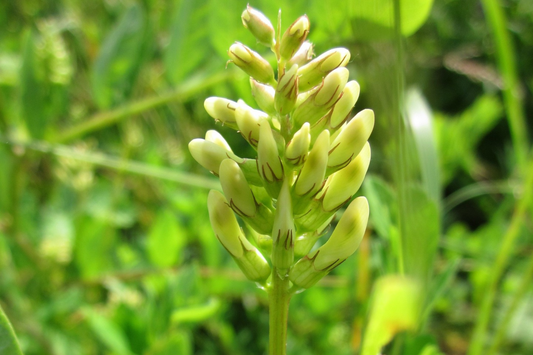Benefit Tips
- Resveratrol is a polyphenol found in various plants, most notably in the skin of red grapes. It has attracted significant interest for its potential health benefits and anti-aging effects.
- Resveratrol extended the lifespan of yeast cells by up to 70%.
- Lifespan Extension: In yeast, worms, and flies, resveratrol can extend lifespan by 10-30%. However, this exact lifespan extension hasn't been consistently demonstrated in mammals.
- Heart Health: Resveratrol can improve endothelial function, which can potentially reduce the risk of heart disease. In one study, high doses improved blood flow by 23% in humans.
- In animal models of heart injury, treatment with resveratrol reduced damage by up to 50%.
- Insulin Sensitivity: Some studies in animals and humans have shown that resveratrol can improve insulin sensitivity. In a study with diabetic mice, resveratrol improved insulin response by 20-25%.
- Anti-Inflammation: Resveratrol has demonstrated anti-inflammatory effects. In human studies, it reduced inflammatory markers like CRP by 26%.
- Brain Health: In rodent models of Alzheimer's disease, resveratrol supplementation reduced the levels of amyloid plaques (common in Alzheimer's) by up to 40%.
- Human studies have shown that resveratrol can improve memory and brain function. In a study with older adults, those taking resveratrol had a 20% improvement in memory performance.
- Cancer Prevention: In various cell culture and animal studies, resveratrol has been found to inhibit the growth of cancer cells by up to 50% for certain cancer types. The effects on human cancers are less clear and require more research.
- Physical Performance: In certain animal models, resveratrol has shown to increase stamina. Mice given resveratrol ran 25% longer before exhaustion compared to controls.
- Protection Against Obesity: In high-fat diet-fed mice, resveratrol has been shown to reduce weight gain by 40%, mainly by increasing metabolism and fat burning.
From Red Wine to Supplements: The Many Forms of Resveratrol and How They Can Benefit Your Health and Longevity
The process of aging is complex and involves a number of biological mechanisms. One of these mechanisms is telomere shortening, which is a natural part of the aging process. Telomeres are the protective caps on the end of chromosomes, and they become shorter each time a cell divides. When they become too short, cells can no longer divide, and they die.1 Telomere shortening has been linked to a number of age-related diseases, including cardiovascular disease, diabetes, and cancer.2,3
Resveratrol is a polyphenol that is abundant in grape skin and seeds. While resveratrol is naturally found in grapes, it is also available in supplement form. Resveratrol has been shown to increase telomerase activity, which is an enzyme that adds DNA to the ends of telomeres, preventing them from becoming too short.4,5
In addition to its effects on telomerase activity, resveratrol has been shown to have a number of other anti-aging properties. It is a powerful antioxidant that can help to reduce oxidative stress and inflammation, both of which are major contributors to the aging process.6-8
Resveratrol has also been shown to have anti-inflammatory effects. In a study published in the journal Molecules, rats were used to investigate whether resveratrol can help regulate oxidative stress and inflammation in Chronic obstructive pulmonary disease (COPD). The rats were divided into three groups: control, COPD, and resveratrol intervention. The COPD model was created by exposing rats to cigarette smoke and lipopolysaccharide (LPS). Resveratrol treatment reduced inflammation and improved lung function in the rats. Resveratrol was also found to reduce oxidative stress and activate certain cellular signaling pathways that are involved in regulating inflammation and oxidative stress.9
In addition to its effects on oxidative stress and inflammation, resveratrol has also been shown to have neuroprotective effects. In a study published in the Journal of Biomedicine and Pharmacotherapy, researchers conducted a study on rats to see if resveratrol could help with inflammation and intestinal stress. Some rats were made diabetic and some were not. Some were given resveratrol and some were not. The researchers looked at the nervous system in different parts of the rats' intestines and also checked for signs of stress in the intestinal wall. They found that resveratrol helped to reduce stress in the intestines and prevented damage to the nervous system in the rats with diabetes. This means that resveratrol could have protective effects on the nervous system in the gut for people with diabetes.10
Resveratrol has also been shown to have anti-cancer properties. It has been shown to be effective in reversing drug resistance in cancer cells, and it can also sensitize cancer cells to other chemotherapy drugs. Researchers have even developed new, more potent versions of resveratrol that have improved anti-cancer activity. Many clinical studies in animals have shown resveratrol to be a promising therapeutic and chemopreventive agent, meaning it may be able to prevent cancer from forming in the first place. 11
In conclusion, resveratrol has shown promise as an anti-aging agent due to its effects on telomerase activity, oxidative stress, inflammation, neuroprotection, and anti-cancer properties, having potential as a natural approach to promoting healthy aging.
References:
- Blasco MA. Telomere length, stem cells and aging. Nature chemical biology. 2007 Oct;3(10):640-9.
- Fyhrquist F, Saijonmaa O, Strandberg T. The roles of senescence and telomere shortening in cardiovascular disease. Nature Reviews Cardiology. 2013 May;10(5):274-83.
- Kong CM, Lee XW, Wang X. Telomere shortening in human diseases. The FEBS journal. 2013 Jul;280(14):3180-93.
- Xia L, Wang XX, Hu XS, Guo XG, Shang YP, Chen HJ, Zeng CL, Zhang FR, Chen JZ. Resveratrol reduces endothelial progenitor cells senescence through augmentation of telomerase activity by Akt‐dependent mechanisms. British journal of pharmacology. 2008 Oct;155(3):387-94.
- Wang XB, Zhu L, Huang J, Yin YG, Kong XQ, Rong QF, Shi AW, Cao KJ. Resveratrol-induced augmentation of telomerase activity delays senescence of endothelial progenitor cells. Chinese medical journal. 2011 Dec 20;124(24):4310-5.
- Truong VL, Jun M, Jeong WS. Role of resveratrol in regulation of cellular defense systems against oxidative stress. Biofactors. 2018 Jan;44(1):36-49.
- Kitada M, Kume S, Imaizumi N, Koya D. Resveratrol improves oxidative stress and protects against diabetic nephropathy through normalization of Mn-SOD dysfunction in AMPK/SIRT1-independent pathway. Diabetes. 2011 Feb 1;60(2):634-43.
- Poulsen MM, Fjeldborg K, Ornstrup MJ, Kjær TN, Nøhr MK, Pedersen SB. Resveratrol and inflammation: Challenges in translating pre-clinical findings to improved patient outcomes. Biochimica et Biophysica Acta (BBA)-Molecular Basis of Disease. 2015 Jun 1;1852(6):1124-36.
- Wang XL, Li T, Li JH, Miao SY, Xiao XZ. The effects of resveratrol on inflammation and oxidative stress in a rat model of chronic obstructive pulmonary disease. Molecules. 2017 Sep 12;22(9):1529.
- Ferreira PE, Beraldi EJ, Borges SC, Natali MR, Buttow NC. Resveratrol promotes neuroprotection and attenuates oxidative and nitrosative stress in the small intestine in diabetic rats. Biomedicine & pharmacotherapy. 2018 Sep 1;105:724-33.
- Ko JH, Sethi G, Um JY, Shanmugam MK, Arfuso F, Kumar AP, Bishayee A, Ahn KS. The role of resveratrol in cancer therapy. International journal of molecular sciences. 2017 Dec 1;18(12):2589.




